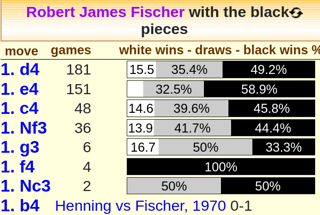The statement means that "tests" (games played) had shown, to Fischer's satisfaction anyway, that e4 is a better opening move than any other option.
His experience with the body of evidence available at that time (both his own games and the many games he studied) made his conclusion more than just a "best guess". It could be compared to the scientific method of hypothesis, test, repeat; where in this case the repeated tests (involving a variety of opening moves) showed (in Fischer's estimation) that e4 was the best opening move.
Modern speakers would likely include "statistically" in the statement for clarity (assuming it were true now like it was then): "e4 is the best, statistically". But that lacks the rhetoric punch of "best by test".
See also this chess.com article on the "Best by Test" statement , which assumes this meaning for Fischer's usage:
While there is no question much of chess is a matter of choice, what if you could know with mathematical certainty which is stronger: 1.e4 or 1.d4? The late Bobby Fischer swore by 1.e4, claiming it was "best by test", but that was before the era of databases.

